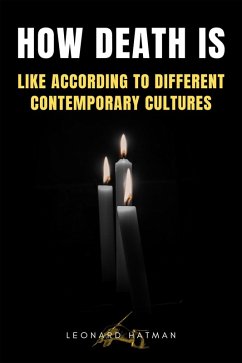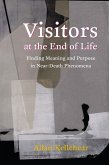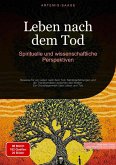Death is one of the deepest and most universal mysteries facing humanity. Since time immemorial, different cultures have tried to understand, explain and cope with this inevitable phenomenon, forging throughout history a rich diversity of perceptions and rituals around death.
In many cultures, death is not seen as an absolute end, but as a transition to another form of existence. For peoples who believe in reincarnation, such as Hindus and Buddhists, death represents a stage in a cycle of rebirth that repeats itself until final liberation from suffering or enlightenment is achieved. In contrast, many Western cultures deriving from Christian, Jewish and Islamic traditions share a dualistic view of death, where the soul transcends to an eternal destination, either heaven or hell, depending on the moral judgment of earthly life.
However, many cultures around the world, especially those with roots in animistic or shamanic traditions, view death in a completely different way. In various parts of Africa, such as in the Yoruba culture of Nigeria or the Zulu in South Africa, ancestors are central figures in the lives of communities. In indigenous cultures of Latin America, such as the Mapuche of Chile or the Quechua of Peru, death is also intertwined with nature and the cycle of life....
In the modern world, many urban and secular cultures have begun to adopt more distant and pragmatic attitudes towards death. In societies where scientific progress and technology dominate the cultural landscape, death is often relegated to the margins of everyday consciousness.
In these pages, you will discover the different ways of understanding this process, in order to establish your own understanding of a process that overwhelms us, but that has as many perceptions as there are cultures, and whose diversity offers us a wide range of options so that we can find the one we consider most in line with our existence and the end of it.
In this book you will discover:
- Cultures that believe in reincarnation: Hindu, Buddhist, Jain, Tibetan, Sikh, Yazidi, Gnostic...
- Cultures that believe in life after death: Christian, Islamic, Jewish, Coptic, Amish, Mormon...
- Cultures with animist and shamanic beliefs: Mapuche, Navajo, Hopi, Maasai, Sami, Yanomami, Quechua...
- Cultures with a cyclical vision: Taoist, Shinto, Druid, Lappish...
- Cultures that practice body preservation: Malagasy, Toraja, Dayak, Hmong...
- Cultures that venerate the dead and maintain ancestral ties: Fang, Confucianism, Igbo, Haitian...
- Cultures that believe in the dissolution of the soul: Essene, New Age, Samkhya...
All this and much more for you to discover all the ways in which humanity understands the process of death!
Dieser Download kann aus rechtlichen Gründen nur mit Rechnungsadresse in A, B, CY, CZ, D, DK, EW, E, FIN, F, GR, H, IRL, I, LT, L, LR, M, NL, PL, P, R, S, SLO, SK ausgeliefert werden.









